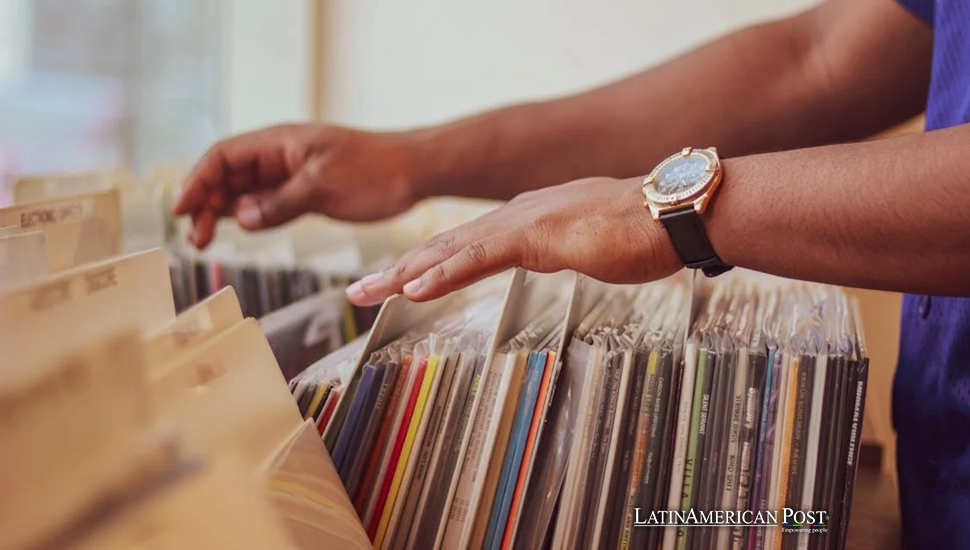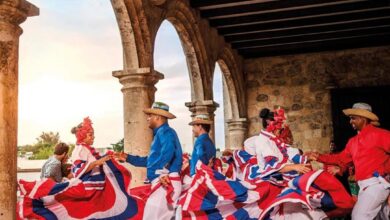Remarkable Latin American Composers Who Shaped Classical Music

Latin America’s classical music composers have crafted powerful and unique works that blend indigenous, African, and European influences. BBC Music Magazine highlights 11 of these remarkable artists who helped shape classical music in Mexico, Brazil, Argentina, and beyond.
A Unique Cultural Blend: Latin America’s Classical Roots
Classical music, often associated with Europe, has been enriched by the unique cultural influences of Latin America. Composers from every corner of the world have contributed to this genre, drawing from the rich tapestry of Latin American culture. Their music is embellished with rhythms, melodies, and harmonies that are distinctly Latin American, influenced by indigenous, African, and European elements. This blend creates compositions that are both sophisticated and accessible, a fascinating journey into the cultural roots of Latin American classical music.
Latin American classical composers, while influenced by the European canon, have left a global imprint with their work that reflects their region’s distinctive cultural identity. From the lyrical patterns of Brazilian chôros to the melancholy melodies of Andean compositions, these composers have created a record of music that is both local and global. They have not only represented their culture but also offered Latin American perspectives on the world of classical music, a testament to their global influence and inspiration.
Mexico’s Musical Mavericks: Manuel Ponce and Carlos Chávez
In Mexico, Manuel Ponce (1882-1948) is celebrated for his pioneering spirit in establishing a unique classical music style that reflects the essence of the nation. As a young composer, he traveled to Europe to further develop his skills and returned to Mexico with a commitment to creating a national sound. His innovative approach of blending Mexican folk songs and rhythms with classical music resulted in music that truly expressed the spirit of his homeland. Ponce’s Violin Concerto, noted by BBC Music Magazine, is one of his most ambitious works, a testament to his innovative spirit and the beauty of his compositions.
A fellow pupil of Ponce’s, Carlos Chávez (1899-1978), lent his immortality to Mexican music as well. His experimentalism stretched the boundaries, at once Mexican traditionalism and modernism. BBC Music Magazine notes his fascination with Indigenous Mexican culture, particularly in Sinfonía, India, which incorporates Indigenous melodies and percussive sounds. Chávez’s friendship with avant-garde composers like John Cage and Lou Harrison influenced his complex rhythmic structures and dissonant tones. Works like his Piano Concerto showcases his bold, eclectic style, synthesizing folk themes with contemporary techniques, making him a true visionary of Mexican classical music.
Argentina’s Iconic Sound: Ginastera, Piazzolla, and Guastavino
Argentina’s Alberto Ginastera (1916-83) is hailed by BBC Music Magazine as a composer who brought the spirit of the Argentine pampas to classical music. Ginastera’s works draw inspiration from gaucho culture, with pieces like Panambí and Estancia capturing the rugged beauty of the Argentine landscape. His later works became more avant-garde, exploring complex rhythms and structures. His Harp Concerto and String Quartets are of his elegant design, combining Argentine tradition with modernity. Ginastera deeply impacted Argentine classical music because he never stopped trying to be new in his style while staying true to his culture.
Astor Piazzolla (1921-92), one of Ginastera’s most famous pupils, reinvented Argentine music by tango in classical and jazz fashion. Piazzolla’s music – such as Four Seasons of Buenos Aires or the Concerto for Bandoneón and Orchestra – exhibits his ability to exploit rhythm and melody in the spirit and fury of the tango. As BBC Music Magazine highlights, Piazzolla’s year-long study in Paris under Nadia Boulanger helped him recognize the tango’s emotional power. His subsequent innovations, particularly in tango-infused classical compositions, earned him a reputation as one of Latin America’s most influential composers.
Another prominent Argentine composer, Carlos Guastavino (1912-2000), focused on lyricism and simplicity. Guastavino avoided avant-garde styles, unlike his contemporaries, opting for heartfelt, melodic compositions inspired by Argentine folk music. BBC Music Magazine notes his La Rosa y el sauce as a beautiful example of his gift for capturing emotion through song. Setting works by poets like Pablo Neruda and Gabriela Mistral to music, Guastavino’s compositions offer an accessible and moving representation of Argentine culture.
Brazil’s Rhythmic Innovators: Villa-Lobos and Mignone
Heitor Villa-Lobos (1887-1959) is widely celebrated as Brazil’s most important composer, and his contributions to classical music are immense. Inspired by the folk music of his homeland, Villa-Lobos crafted compositions that resonated with Brazilian rhythms and colors. His ‘Bachianas Brasileiras’ is a series of nine suites that blend Brazilian folk music with the style of Johann Sebastian Bach, illustrating his ability to blend Brazilian musical traditions with classical forms. BBC Music Magazine highlights this series and ‘Chôros’ as Villa-Lobos’s defining works, revealing a rhapsodic and sometimes dissonant quality that captures the vibrancy of Brazilian culture while drawing influence from composers like Debussy and Milhaud.
Francisco Mignone (1897-1986) also made significant contributions to Brazilian classical music, incorporating popular Brazilian styles like modinha, samba, and habanera into his works. His Festa das igrejas and Congada, performed by conductor Arturo Toscanini, gained international recognition. According to BBC Music Magazine, Mignone’s innovative pieces for bassoon—such as his Concertino for Bassoon and Chamber Orchestra—reflect Brazil’s diversity and depth. His compositions celebrate Brazilian life, presenting a lyrical style infused with local rhythms and musical traditions.
The Legacy Continues: Brouwer, Sierra, and Frank
Latin America’s classical music legacy is far from static, as contemporary composers continue to build on the work of their predecessors. Cuba’s Leo Brouwer (b.1939) has established a remarkable catalog of guitar compositions, blending Afro-Cuban elements with avant-garde techniques. His String Quartet No. 4 and Elogio de la danza showcase his ability to create complex, engaging works that push the boundaries of classical guitar music. BBC Music Magazine praises Brouwer’s fusion of folklorist and minimalist styles, which remain virtuosic and accessible to audiences worldwide.
Puerto Rican composer Roberto Sierra (b1953) has also been a force of contemporary classical music, with compositions that are his own Afro-Caribbean heritage. Sierra’s Missa Latina, an exuberant Latin mass, draws Latin America into Western conventions. Sierra’s Fandangos – a celebration of Latin dancing orchestrated – has been voted one of his greatest works by BBC Music Magazine. In his songs, Sierra has also brought Latin American classical music a voice that revels in the musical and rhythmic diversity of his native culture.
In the United States, Gabriela Lena Frank (b.1972) has drawn from her Peruvian heritage to create works that bridge the gap between Andean folk traditions and classical music. Her Leyendas: An Andean Walkabout features traditional Andean harmonies and instruments, while her Hilos pays homage to Peruvian textiles. ‘Frank’s music is so poetic, so thick texture, and very Peruvian,’ says BBC Music Magazine of Frank’s music. Combining her Peruvian heritage with modern classical techniques, Frank continues to take Latin American classical music to the world stage.
Also read: Latin American Cinema’s Creative Content Shining at Global Stage
Latin American classical composers left an indelible imprint on the music world, their music expressing their own cultural mosaicism. From Carlos Chávez in Mexico to Astor Piazzolla in Argentina to Heitor Villa-Lobos in Brazil, composers from everywhere have left a legacy that resonates with us all. BBC Music Magazine’s interview with these 11 remarkable composers speaks volumes of Latin America’s rich history in classical music — music that, thanks to these musicians, has rhythms, melodies, and harmonies unique to Latin America.





